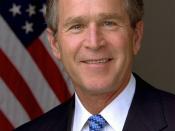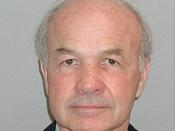On the 2nd of December 2001, Enron, at the time the seventh largest company in the US, filed for Chapter 11 becoming the biggest bankruptcy in any industry anywhere with losses around the $60B mark. The company's share prices fell from a high of $90 in August 2000 but were trading on the markets at about 45 cents.
Enron started life as a regional gas pipeline company in 1985, but by 2001 it had become the world's largest energy trading company. Company success came about because of Enron's ability to exploit the trading opportunities brought about by deregulation in the late 1980's allowing users to buy gas or electricity from a number of producers. Before long it was the sweetheart of Wall Street as analysts heaped praise on the firm for its unique approach in bringing high-tech, complex finance to energy trading. However, it was in August 2001 that the deeper institutional problems within Enron began to emerge.
The abrupt resignation of CEO Jeffrey Skilling, citing "entirely personal reasons" for his decision was to sow the seed of doubt in the shareholders' minds, and the stock price began to slide.
The situation deteriorated dramatically in October when Enron had to set aside $35M to cover losses in two complex partnerships, which were set up in 1999 to move debt off its balance sheet and hide losses. It was also forced to knock $1.2B off shareholder equity at the time, a move that led to a crisis in investor confidence and a collapse in Enron's share price precipitated by a credit rating downgrade, which was almost certainly the last straw.
What was the role of Enron's auditors? And what influence did Enron have over the Bush Administration with respect to the Government's energy policy? It is clear...


